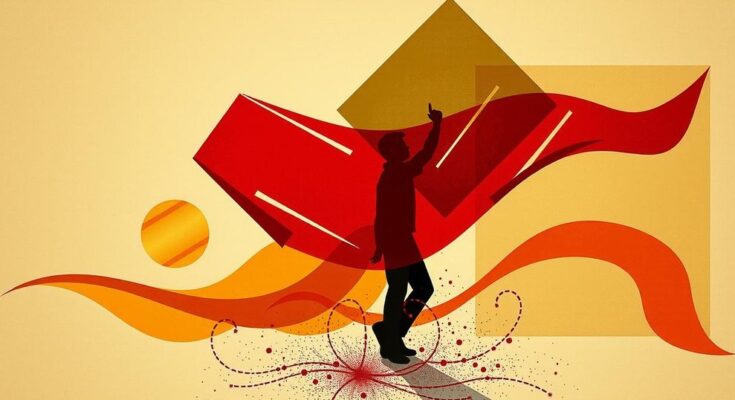In his op-ed, Iran’s Foreign Minister Seyed Abbas Araghchi discusses the current chaotic state of global politics, exemplified by recent disputes within the U.S. government. He emphasizes the evolving role of nations such as Ukraine, the challenges facing a united European response, and the implications for Russia’s increasing influence. Araghchi advocates for Iran’s commitment to independence, self-reliance, and resilience against external pressures, positing that security should derive from internal strength rather than foreign dependency.
In an op-ed published by Seyed Abbas Araghchi, Iran’s Foreign Minister, observations were made regarding the current chaotic state of international politics, particularly highlighted by a recent controversy involving United States officials. This event is more than a mere disagreement; it indicates significant fractures in global political structures, suggesting the reality of a turbulent political landscape. There are questions regarding whether this conflict was orchestrated or arose incidentally, yet it clearly exemplifies that decisions are no longer made in isolation.
The established notion of Washington as the epicenter of decision-making is challenged by this incident, demonstrating strategic uncertainties and internal dissent within Western alliances. The promises of the Trump administration for swift conflict resolutions are met with increasing difficulties, thrusting American leadership into a precarious situation. The ongoing war has entangled interests that complicate the fulfillment of initial commitments, creating an atmosphere of pressure for United States leaders.
Zelensky’s assertive stance during this White House conflict reflects Ukraine’s evolving role, transitioning from reliance on Western support to a more assertive position as an independent voice. This change signifies that nations, once considered subordinate, are now asserting their dignity and agency in international relations, suggesting a shift in the dynamics of power.
Europe’s solidarity regarding Ukraine is now under scrutiny, as intra-European differences have come to light amid the recent dispute. Countries such as France and Germany have maintained a more cautious approach to the Ukraine conflict, leading to questions about the continuity of a united European front in the face of American leadership challenges.
Moscow observes the tumult in Washington with interest, reinforcing its long-held belief in the fragility of the Western alliance. The Kremlin seizes this moment to recalibrate its international strategy, strengthening relationships with both China and developing nations while seeking to reduce reliance on Western financial systems. The divergence in European perspectives towards Russia also presents potential vulnerabilities for the West.
The intersection of domestic and foreign policies in the United States complicates international diplomacy, as leaders navigate internal political pressures. This dual focus hampers the predictability of US foreign policy, presenting potential challenges for its allies and the global political landscape.
In light of these developments, Iran seeks to navigate the uncertain global environment with caution and strategic deliberation. Emphasizing independence and mutual respect, Iran’s foreign policy is predicated on the principle that true security derives from self-reliance rather than dependence on external powers. This pragmatic approach stems from a historical understanding of the precariousness of relying on foreign support.
Iran has historically faced pressures, such as sanctions and military threats, yet has continuously pursued a policy of self-sufficiency and development rooted in national capabilities. Contrary to its adversaries’ expectations, Iran has not capitulated but has instead demonstrated resilience and commitment to its path of progress, reinforcing the belief that national security constructed through independence is essential.
Ultimately, the lessons of history underscore the importance of sovereignty, illustrating that nations that prioritize dependence often face abandonment during critical times. Iran’s steadfast commitment to its principles—eschewing conditional external support—underscores its determination to cultivate an autonomous and self-reliant future.
The op-ed by Seyed Abbas Araghchi elucidates a tumultuous international landscape, marked by a fracturing Western alliance, evolving positions among nations like Ukraine, and the complexities of domestic politics affecting diplomacy. Iran’s strategic choice of independence amidst chaos highlights the importance of self-reliance and resilience, emphasizing that true security must come from internal strengths rather than external dependencies. As global dynamics continue to shift, Iran’s principled approach to foreign policy remains a crucial aspect of its national identity.
Original Source: ifpnews.com




